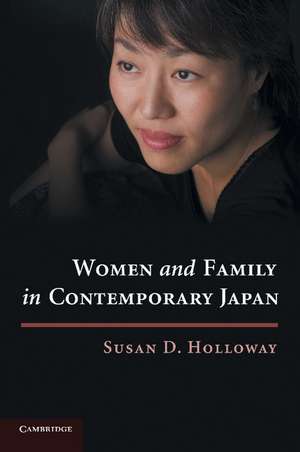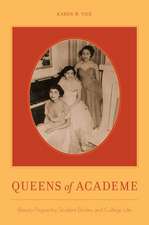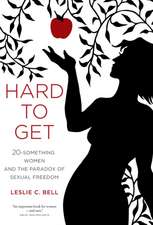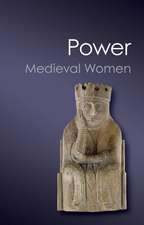Women and Family in Contemporary Japan
Autor Susan D. Hollowayen Limba Engleză Paperback – 23 mai 2010
| Toate formatele și edițiile | Preț | Express |
|---|---|---|
| Paperback (1) | 255.58 lei 6-8 săpt. | |
| Cambridge University Press – 23 mai 2010 | 255.58 lei 6-8 săpt. | |
| Hardback (1) | 499.70 lei 6-8 săpt. | |
| Cambridge University Press – 23 mai 2010 | 499.70 lei 6-8 săpt. |
Preț: 255.58 lei
Nou
Puncte Express: 383
Preț estimativ în valută:
48.92€ • 53.16$ • 41.12£
48.92€ • 53.16$ • 41.12£
Carte tipărită la comandă
Livrare economică 21 aprilie-05 mai
Preluare comenzi: 021 569.72.76
Specificații
ISBN-13: 9780521180375
ISBN-10: 0521180376
Pagini: 256
Ilustrații: 6 b/w illus. 4 tables
Dimensiuni: 150 x 226 x 20 mm
Greutate: 0.41 kg
Editura: Cambridge University Press
Colecția Cambridge University Press
Locul publicării:New York, United States
ISBN-10: 0521180376
Pagini: 256
Ilustrații: 6 b/w illus. 4 tables
Dimensiuni: 150 x 226 x 20 mm
Greutate: 0.41 kg
Editura: Cambridge University Press
Colecția Cambridge University Press
Locul publicării:New York, United States
Cuprins
1. 'Good wives, wise mothers': parenting and family life in cultural context; 2. Locating the research in space and time; 3. What is a wise mother?; 4. Hansei: the process of self-reflection; 5. Memories of childhood; 6. Husbands: crucial partners or peripheral strangers?; 7. Shitsuke: the art of childrearing; 8. Maternal involvement in children's schooling; 9. Balancing work and family life; 10. Women and family life: ideology, experience and agency.
Recenzii
“Japanese mothers are powerful figures: they shape not only home life but also the workings of Japanese communities, schools, and workplaces. Susan Holloway uses Japan as a lens through which to explore the broad question of how culture shapes child-rearing. Her in-depth interviews with Japanese women shed light on universal questions: how mothers imagine what makes an effective parent, how one’s own upbringing affects one’s parenting, how to preserve tradition while accommodating modern demands, and how to balance work and family. This is a fascinating book grounded in the history and anthropology of Japan which speaks to the mounting pressures on the family in the industrialized world.”
– Amy Borovoy, Princeton University, author of The Too-Good Wife: Alcohol, Codependency, and the Politics of Nurturance in Postwar Japan
"In this timely and path-breaking book, Susan Holloway paints an engaging canvas of how cultural concerns and public policies have shaped the ways young Japanese women view themselves, without losing sight of the ways that individual women also transcend their own culture in their perceptions and evaluations of what it means to be wife and mother. The combination of these elements – the cultural, the institutional, and the individual – is what makes this book so powerful and different from previous treatments of Japanese families. A must-read book for scholars interested in an up-to-date narrative of Japanese women as mothers and wives in contemporary Japan."
– Per F. Gjerde, University of California, Santa Cruz
“Through a series of candid face-to-face, in-depth interviews supplemented by survey results, Holloway brings us a stunning critique of Japan’s approach to the lives of women – conditions of education, work, and marriage that often add stress rather than support. Declines in rates of marriage and childbirth are understandable results, particularly under the scrutiny of the ‘faceless other’ lurking among neighbors and extended family. The situation requires mothers to draw heavily on individual strength to attempt to create opportunities not only for their child’s academic success but also for their personal happiness.”
– June A. Gordon, University of California, Santa Cruz
"There is no doubt that this is a major contribution to research and scholarship on Japanese parenting, child rearing, and education, but it is also a polished piece of writing, commanding the attention of anyone even slightly interested in the subject. The book is at once a synthesis of social science data and perspectives and an in-depth study of the attitudes and behaviors of 16 mothers in Osaka. Its analysis, reflecting the long experience of the author with this subject, is consistently illuminating, credible and balanced."
– Robert A. LeVine, Harvard University
“Susan Holloway explores the ‘good mother’ in Japan in ways so far untreated in the western literature on Japan. Why is it that Japanese women who now have so many options for work and activities still measure themselves by their capacity to be good mothers? Holloway examines the peaks and valleys of the landscape of women’s lives in Japan, revealing the psychological and social complexities at ground level. The voices of four mothers frame a story of confidence where demands are high, initiative where frustration bars the door, and self evaluation and determination when there is little support. And yet, the joys of motherhood in Japan are evident, perhaps more strikingly available to a Japanese mother than to her striving western counterpart.”
– Merry White, Boston University
"....the book is an impressive contribution to several fields of study. It is a careful, thoughtful project that provides important insights into Japan today and hints of the future society in which these young children will be adults. It demonstrates the value of multi-level analysis of social-psychological issues incorporating both individual agency and sociocultural constraints. The project provides rich comparative data for analyzing the relationship between parental self-efficacy and factors of social class, cultural values, social support, and institutional setting. For policy experts looking to understand young women’s reluctance to marry and bear children at the rates of the past, this well-crafted book is an excellent place to begin."
– Susan Orpett Long, John Carroll University, International Journal of Sociology of the Family
"Holloway (education, Berkeley) provides a very detailed look into the lives of Japanese women in the context of family.... Holloway also breaks some new ground, including an exploration of some interesting data on husbands, uncommon for books dealing with Japanese women. She also does well to contextualize the ways the lives of women intersect with public policies. Overall, this solid addition to the literature on Japan does a nice job of integrating qualitative and quantitative forms of data.... Recommended."
– J.W. Traphagan, University of Texas at Austin, CHOICE
– Amy Borovoy, Princeton University, author of The Too-Good Wife: Alcohol, Codependency, and the Politics of Nurturance in Postwar Japan
"In this timely and path-breaking book, Susan Holloway paints an engaging canvas of how cultural concerns and public policies have shaped the ways young Japanese women view themselves, without losing sight of the ways that individual women also transcend their own culture in their perceptions and evaluations of what it means to be wife and mother. The combination of these elements – the cultural, the institutional, and the individual – is what makes this book so powerful and different from previous treatments of Japanese families. A must-read book for scholars interested in an up-to-date narrative of Japanese women as mothers and wives in contemporary Japan."
– Per F. Gjerde, University of California, Santa Cruz
“Through a series of candid face-to-face, in-depth interviews supplemented by survey results, Holloway brings us a stunning critique of Japan’s approach to the lives of women – conditions of education, work, and marriage that often add stress rather than support. Declines in rates of marriage and childbirth are understandable results, particularly under the scrutiny of the ‘faceless other’ lurking among neighbors and extended family. The situation requires mothers to draw heavily on individual strength to attempt to create opportunities not only for their child’s academic success but also for their personal happiness.”
– June A. Gordon, University of California, Santa Cruz
"There is no doubt that this is a major contribution to research and scholarship on Japanese parenting, child rearing, and education, but it is also a polished piece of writing, commanding the attention of anyone even slightly interested in the subject. The book is at once a synthesis of social science data and perspectives and an in-depth study of the attitudes and behaviors of 16 mothers in Osaka. Its analysis, reflecting the long experience of the author with this subject, is consistently illuminating, credible and balanced."
– Robert A. LeVine, Harvard University
“Susan Holloway explores the ‘good mother’ in Japan in ways so far untreated in the western literature on Japan. Why is it that Japanese women who now have so many options for work and activities still measure themselves by their capacity to be good mothers? Holloway examines the peaks and valleys of the landscape of women’s lives in Japan, revealing the psychological and social complexities at ground level. The voices of four mothers frame a story of confidence where demands are high, initiative where frustration bars the door, and self evaluation and determination when there is little support. And yet, the joys of motherhood in Japan are evident, perhaps more strikingly available to a Japanese mother than to her striving western counterpart.”
– Merry White, Boston University
"....the book is an impressive contribution to several fields of study. It is a careful, thoughtful project that provides important insights into Japan today and hints of the future society in which these young children will be adults. It demonstrates the value of multi-level analysis of social-psychological issues incorporating both individual agency and sociocultural constraints. The project provides rich comparative data for analyzing the relationship between parental self-efficacy and factors of social class, cultural values, social support, and institutional setting. For policy experts looking to understand young women’s reluctance to marry and bear children at the rates of the past, this well-crafted book is an excellent place to begin."
– Susan Orpett Long, John Carroll University, International Journal of Sociology of the Family
"Holloway (education, Berkeley) provides a very detailed look into the lives of Japanese women in the context of family.... Holloway also breaks some new ground, including an exploration of some interesting data on husbands, uncommon for books dealing with Japanese women. She also does well to contextualize the ways the lives of women intersect with public policies. Overall, this solid addition to the literature on Japan does a nice job of integrating qualitative and quantitative forms of data.... Recommended."
– J.W. Traphagan, University of Texas at Austin, CHOICE
Notă biografică
Descriere
This book draws on in-depth interviews and extensive data to examine why contemporary Japanese women are postponing marriage and bearing fewer children.
















